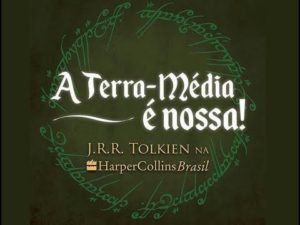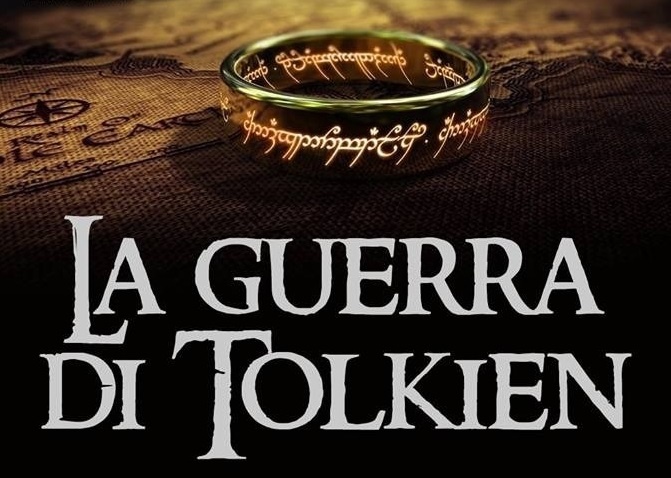Altrove
“Sometimes, choices may differ a little from previous translations. All of them have been thought and thought over, always trying to find the word that, in the opinion of all the Committee members, Tolkien would have chosen, had he written in Portuguese. Bearing this in mind, at first the Committee tries to refer to the text “The Names in The Lord of the Rings” or “Guide to the Names in The Lord of the Rings”, written by Tolkien himself and published in different collections. In the Guide, the author clarifies what names might or must be translated, and which he wanted kept unchanged.”

Unfortunately for us, the new Tolkien translator, editors, or Italian publisher have never uttered such words.
Thanks to Veronica Carbonetto, who translated it from Portuguese, I was able to read the entire above quoted note of Harper Collins Brazil that explains to Brazilian Tolkien fanbase the issues about the new translation pursued in Brazil by the official Tolkien translators in a ‘Committe’ composed by “Samuel Coto (HarperCollins Brazil’s publishing manager), Ronald Kyrmse (Tolkien scholar, for 40 years member of the Tolkien Society and translator of more than ten of Tolkien’s books), Reinaldo José Lopes (journalist, author, and translator with a master’s and doctorate on translating Tolkien), and Gabriel Oliva Brum (literary translator specialised in fantasy)”.
This note was published on the Tolkien Brasil website, and details will soon be published and let be known in Italy by means of Tolkien Italia, but in the meanwhile, there’s something to underline .
Nowadays, what’s happening in Brazil is just the opposite of what’s happening here in Italy. An old translation, anything but philological and respectful of Tolkien, is going to be put apart in favour of a new one edited by the official publisher of the Tolkien Estate, who’s not entrusted a single ‘expert translator’, but a team of specialists. To explain how they are working, they give a quite―let’s say―‘odd’ example:
“For this reason translations all over the world, in one way or the other, have made changes to the names. What to say, for example, about the Italian translation of The Lord of the Rings (1967) where, thanks to the translator’s intuition, Orc was not translated with the correspondent Orco, but with its diminutive Orchetti? It was, undoubtedly, an adapted translation. This adaptation was approved by Tolkien himself, who praised this choice.”
And the text goes on:
“At last, it is impossible to state with absolute certainty which translation or word adaptation Tolkien would have preferred, as he cannot judge them any more. Nonetheless we are basing ourselves on other translations – included the above mentioned Italian one, approved by the author who preferred to use the diminutive of the word Orc (Orchetti). He was in favour of a subjective interpretation of the physical size of his creatures, despite the Old English original meaning, therefore we refer to his own directions and, considering that the few disapprovals to the new translation we’ve received have no actual argumentation, we believe our publishing project to be consistent with Tolkien’s proposal.”
Harper Collins Brasil clearly takes princess Vittoria Alliata di Villafranca as a model for their translation: she translated Tolkien fifty years ago with the limited technical means of that time and completely on her own. It was really ‘an improvised adventure’, but the result is absolutely beyond doubt, at least in the eyes of those who know Tolkien and the history behind that translation. Therefore, Harper Collins explicitly asserts that Alliata’s translation was approved by Tolkien, and they consider her an example of respect for the text and the will of the author. I do not believe a clearer evidence can be given than the esteem Tolkien had once, and the Tolkien Estate have nowadays for her.
If someone inquires what Tolkien’s approval was, he does not need to search long. He simply has to refer to the relevant chapters in Oronzo Cilli’s Tolkien e l’Italia, a book that – documents in hand – tells the way Tolkien approved or rejected translations, as well as reporting documentary material proving that Tolkien knew Italian, had Italian friends among Oxford Professors, could ask for help or for a piece of advice and submit the translation for a revision. Tolkien’s approval, moreover, concerned the nomenclature that today is published and available for everyone in the Hammond e Scull’s volume The Lord of the Rings: A Reader’s Companion. As a matter of fact, it is the nomenclature from The Lord of the Rings, in which Tolkien explains for each name why and how it must be translated or not. Princess Alliata followed all Tolkien’s directions, and, as explained above, each word that in her translation that does not correspond to the author’s will is due to the (twice performed) editing of Quirino Principe. But we know that the new translator, evidently chosen by Bompiani without any accordance with the Tolkien Estate, is not following the Professor’s guidelines on translations. The most impressive case we know was mentioned by Franco Cardini (teacher of Medieval and Modern History at the University of Florence and author of several essays on Tolkien), again during the conference at the Senate on the 17th January: Hobbiville. According to O. Fatica, in his interview for Repubblica mentioned before, ‘translating Hobbiton with Hobbiville is like translating Superman with Nembo Kid (one of the former names of the DC Comics hero Superman in Italy). Shame that Hobbiton means hobbit+village, hence Hobbiville, in Alliata’s translation. This is something Tolkien himself ―not others― says, precisely in the Guide to the Names in The Lord of the Rings. As for the rest, O. Fatica seems pretty confused:
“Elven words will be kept in Elvish. We have to meditate on the rest. We have to decide whether to leave almost everything in English or to try to recreate in Italian a place or character’s name, by means of an evocative name, just as one suggests a deep valley or a big and sturdy warrior.”
Apart from Elven words that will be kept in Elwish (oh, please!) and the ‘big and sturdy warrior’ (wouldn’t it be one of the expressions to delete among the five hundred mistakes per page throughout 1500 pages?), has the new translator not been told that all he needs is in the Guide to the Names in The Lord of the Rings and in the Appendix of names in The Lord of the Rings? Either he does not know this information or he intentionally ignores them.


